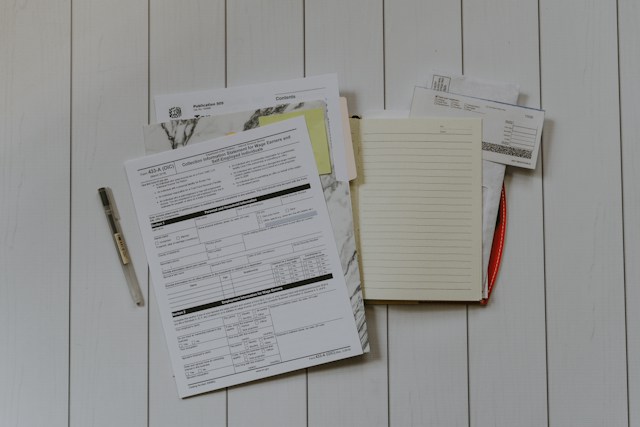Form 941 Schedule B Explained: All You Need to Know

Navigating tax forms can be a daunting task, especially when it comes to payroll taxes. If you’re an employer, understanding Form 941 Schedule B is crucial for accurate tax reporting. So, read on to discover the intricacies of Form 941 Schedule B, ensuring you have all the essential knowledge to stay compliant with the IRS.
What is Form 941 Schedule B?
Form 941 Schedule B is an attachment to the quarterly employment tax return, Form 941. This schedule is specifically designed to report additional information on the tax liability for semi-weekly depositors. If you’re wondering whether this applies to you, the answer lies in your deposit schedule.
When filing your quarterly taxes, it’s crucial to accurately complete Form 941 along with Schedule B, ensuring precise reporting of your tax liabilities for each day in the quarter. If you’re a semi-weekly depositor, then Form 941 Schedule B is a document you need to be familiar with.
Understanding Semi-Weekly Depositors: Are You One?
To determine if you fall into the category of semi-weekly depositors, it’s essential to assess your payroll tax liabilities. If your accumulated tax liability exceeds $100,000 on any given day during a deposit period, or if your accumulated tax liability on the last day of a deposit period is $100,000 or less but you’ve exceeded the $100,000 threshold at any point during the current or prior calendar year, congratulations – you’re a semi-weekly depositor. This means you must complete Form 941 Schedule B when filing your quarterly taxes.
Filling Out Form 941 Schedule B: A Step-by-Step Guide
The form itself requires specific information, and accuracy is paramount to avoid penalties. You’ll need to detail your tax liability for each day in the quarter, ensuring meticulous reporting. This includes separating tax liabilities for social security, Medicare, and withheld federal income tax. Each line on Form 941 Schedule B corresponds to a particular day, making it crucial to keep precise records of your tax liabilities throughout the quarter.
Detailed Recording of Tax Liabilities
When filling out Form 941 Schedule B, you must provide a comprehensive breakdown of your tax liabilities for each day of the quarter. This involves meticulous recording of social security, Medicare, and withheld federal income tax. Accuracy is key, as any discrepancies can lead to penalties and potential audits. Therefore, maintaining an organized system for tracking these daily tax obligations is crucial.
Understanding Line-by-Line Entries
Form 941 Schedule B is structured with each line corresponding to a specific day, demanding a detailed breakdown of your tax liabilities. Take the time to understand each line’s purpose and how it relates to your payroll transactions. Proper categorization ensures that the IRS receives accurate information, reducing the likelihood of errors and facilitating a smoother tax filing process.
Timely and Consistent Reporting
To avoid complications and penalties, it’s essential to consistently report tax liabilities on Form 941 Schedule B promptly. Delays or irregularities in reporting can lead to misunderstandings with the IRS and may result in financial consequences. Set up a reliable system to ensure that your records are updated daily, making the quarterly filing process more efficient and reducing the risk of mistakes.
Reconciling Records and Staying Audit-Ready
Regularly reconcile your records with your payroll and financial systems to ensure alignment. Being audit-ready is not just a best practice – it’s a necessity. The IRS may request documentation or conduct audits, and having accurate records readily available will streamline the process. By staying proactive in your approach to record-keeping, you not only fulfill your tax obligations but also position your business to handle any unforeseen challenges with confidence.
Penalties for Non-Compliance: Why It Matters
Non-compliance with Form 941 Schedule B can result in penalties that no business wants to face. The IRS is strict about accurate and timely reporting. Failing to file or filing incorrect information may lead to penalties, adding unnecessary financial strain to your business. By understanding the importance of Form 941 Schedule B and staying vigilant in your reporting, you can steer clear of these potential pitfalls.
Monetary Penalties
The IRS imposes monetary penalties for non-compliance with Form 941 Schedule B, and these can escalate based on the severity and duration of the violation. For instance, failing to file the form on time or providing inaccurate information can result in penalties ranging from a percentage of the total tax amount due to a fixed amount per form, depending on the violation’s nature. These financial penalties can quickly accumulate, placing an avoidable burden on your business’s bottom line.
Reputational and Operational Risks
Beyond monetary consequences, non-compliance with Form 941 Schedule B can harm your business’s reputation and operational efficiency. Repeated or severe violations may trigger closer scrutiny from the IRS, potentially leading to audits. The resulting disruption in business operations and the reputational damage associated with non-compliance can have lasting effects, affecting relationships with both clients and employees.
Common Mistakes to Avoid
While completing Form 941 Schedule B, be wary of common mistakes that can lead to inaccuracies in your tax reporting. One prevalent error is miscalculating tax liabilities, especially when dealing with varying pay frequencies or special payroll scenarios.
Additionally, failing to keep up with changes in tax laws or deposit schedules can result in unintentional errors. Stay informed and double-check your entries to ensure precise reporting. Utilizing payroll software or consulting with a tax professional can be invaluable in minimizing the risk of mistakes.
Utilizing Resources and Seeking Professional Guidance
To simplify the process of tackling Form 941 Schedule B, leverage available resources and consider seeking professional guidance. The IRS provides detailed instructions for completing the form, and these guidelines can serve as a valuable reference. Moreover, don’t hesitate to consult with a tax professional or accountant who specializes in payroll matters. Their expertise can help you navigate the complexities of Form 941 Schedule B, ensuring that you not only meet your tax obligations but also optimize your payroll processes for efficiency.

By understanding the purpose, recognizing your deposit schedule, avoiding common mistakes, and utilizing available resources, you can take control of your payroll taxes. Accurate reporting not only keeps you in compliance with IRS regulations but also helps you avoid costly penalties.
Form 941 Schedule B is not just a formality – it’s a tool that empowers your business with the financial transparency needed for effective tax management. Stay informed, stay accurate, and take the necessary steps to ensure your business remains on solid ground when it comes to payroll tax obligations.



